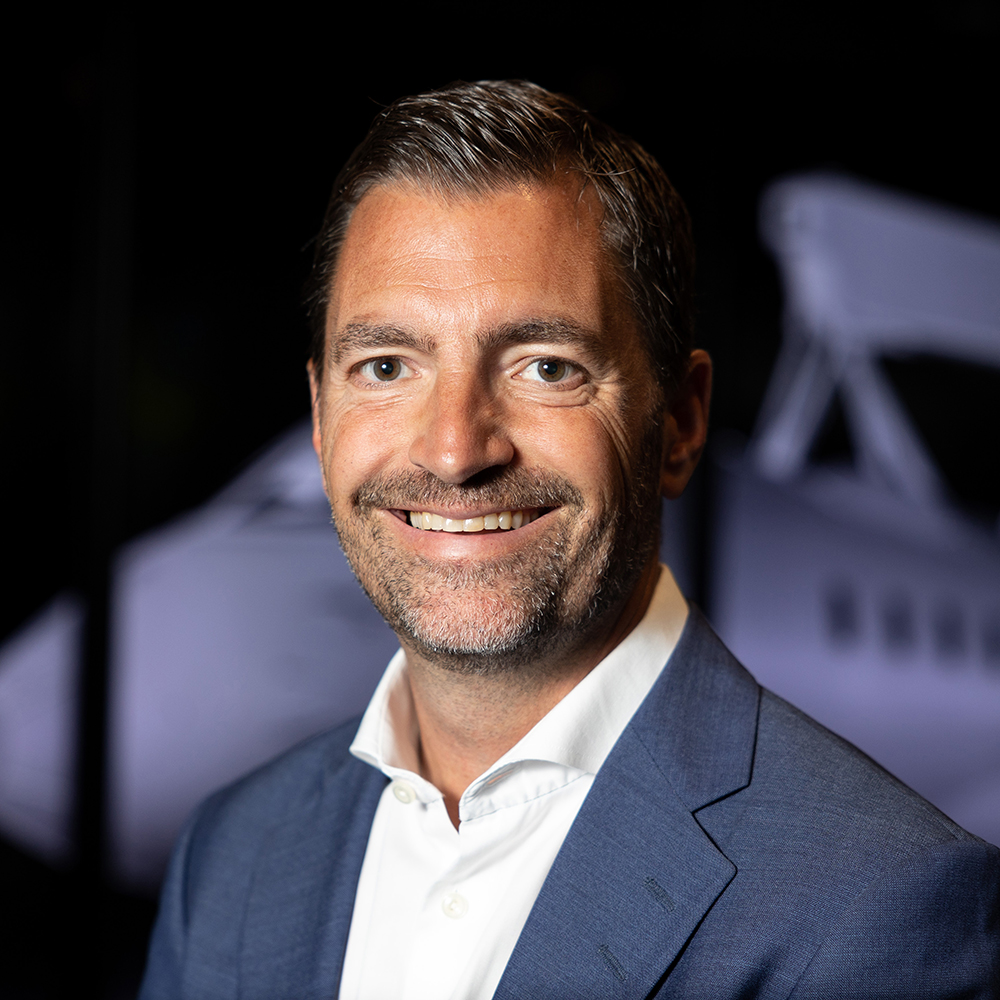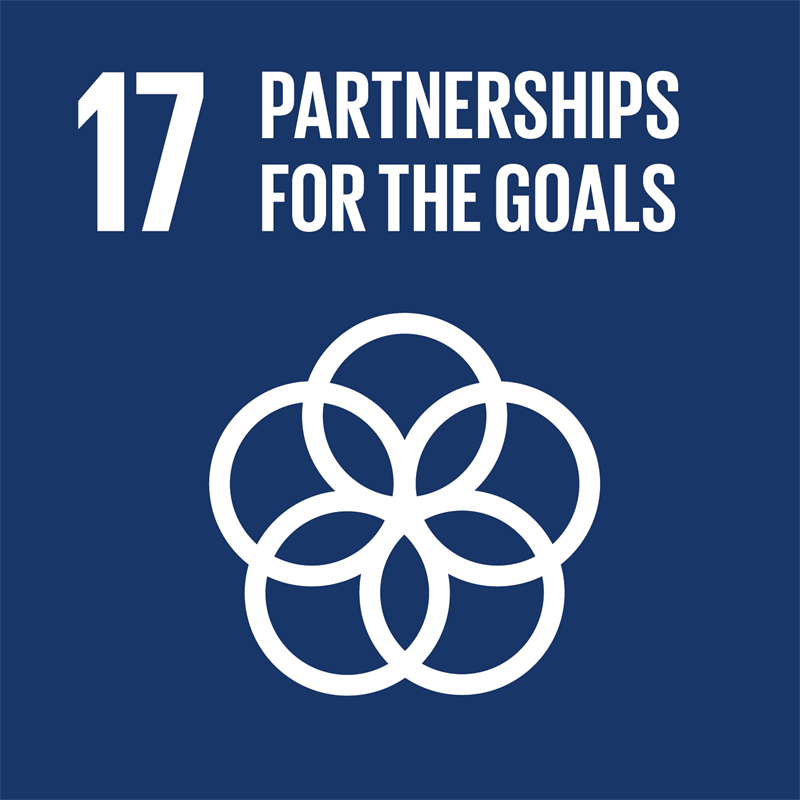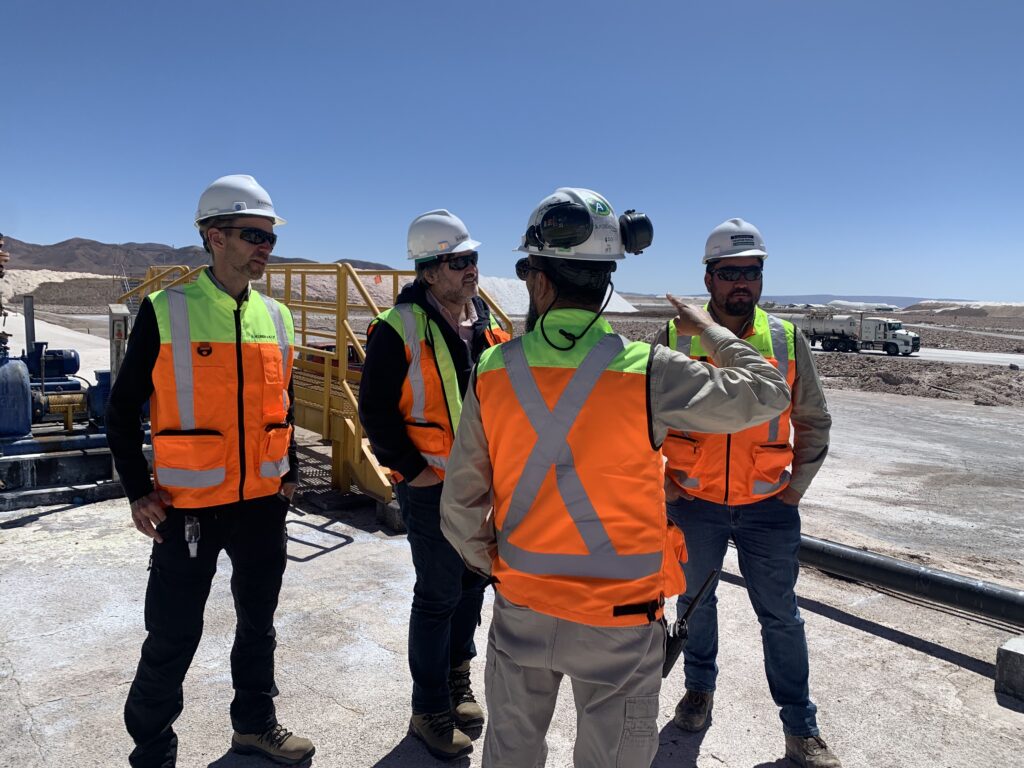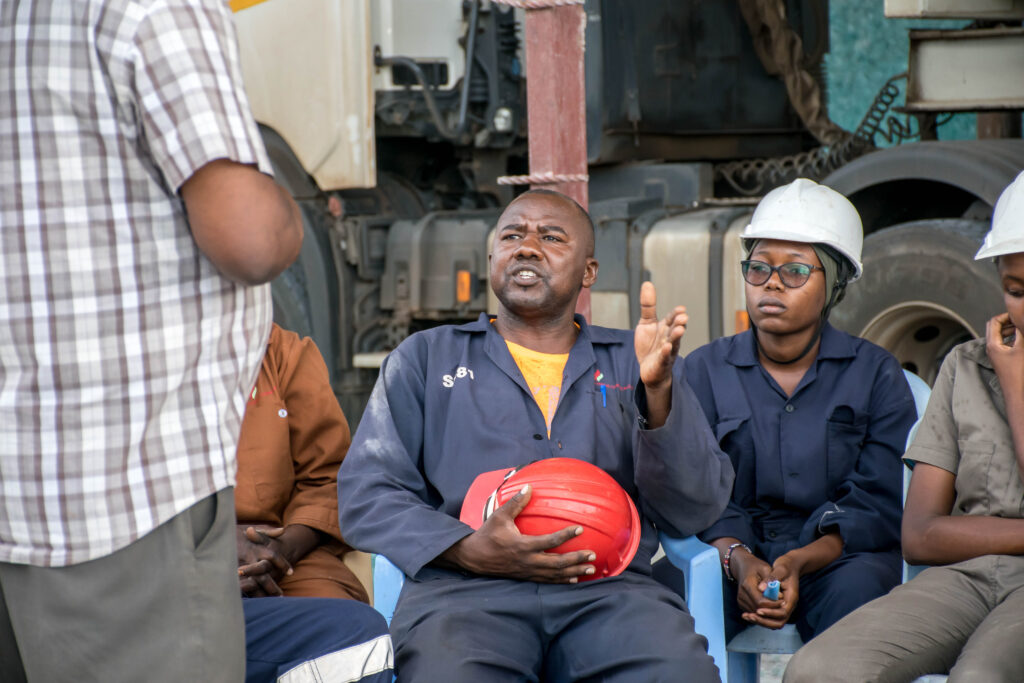Our 2023 Annual Report sums up the dynamic year we had – adding value for our members and partners from across the globe as an enabler of proactive collaborations and new partnerships. We hope you enjoy reading about our accomplishments!
Highlights from the report.
FROM THE CEO
Risks and Readiness
Our forward-looking Board of Directors adopted a new organizational strategy andstrategic goals in 2020. That was the start of our transformational journey, and we can be proud of the result. We have accomplished the challenging task of performing and transforming in parallel. We closed out 2023 being the pioneering and purpose-driven non-profit organization we set out to be.
While 2023 was a year in which we delivered on key strategic objectives as an organization, it was also a year in which risks exponentially increased in the global economy. This changing risk landscape led us to take big steps in developing our offering to members by enabling even more opportunities to meet, share and learn.
Our members met on 26 occasions to discuss ESG risks and opportunities.To facilitate regular peer-to-peer exchanges, three Networks were established – responsible sourcing, anti-corruption and sanctions. In addition, a Compliance Academy, designed by a core group of members was launched in November.
With Hitachi Energy joining and SEK becoming a full member in January, our growth was supported by the recruitment of four new members in 2023. In September we were pleased to welcome SKF and Sandvik, both which have in-depth expertise and extensive global networks. SKF contributes to the green transition by providing clean technology solutions for the industrial transformation and making supply chains more sustainable. Sandvik is a global, high-tech engineering group which provides solutions that improve productivity, profitability and sustainability for the manufacturing, mining, and infrastructure industries in 150 markets.
We see a growing need to strengthen partnerships to proactively develop jointsolutions to meet an unpredictable and rapidly changing business environment and increased political risk. An unstable business environment and political uncertainty lead to challenging risks but also strategic opportunities linked to the green transition and ensuring sustainable supply chains. In 2023, we took significant steps to strengthen our partnerships in response to these challenges. Most notably, through a new collaboration to promote sustainability and responsibility in the mining sector in Latin America. Within this initiative, we collaborate with two regional partners – the Stockholm Environment Institute and the Vincular Center, a leading institution that integrates corporate sustainability into business strategies.
As we enter 2024, the world faces a challenging geopolitical situation. Together with our members, we will respond by strengthening partnerships to foster synergies as a nexus between international trade and development cooperation. Swedish industry has an important role to play in this nexus by contributing to the green and digital transitions, job creation and economic and social sustainability in their value chains. We are ready to take our partnership with the Swedish International Development Cooperation Agency (Sida) to the next level to create an even stronger joint approach to promoting a positive sustainability impact and business in complex
markets
.
Meeting Point NIR
Sharing knowledge and staying current
Meeting Point NIR is where we facilitate peer-to-peer exchanges between our members in a safe space to allow for in-depth sharing of experiences, learning from good practices and building partnerships to develop joint solutions. We also facilitate meetings with externals when relevant and upon request. Many of the meetings cover topics and markets and have been planned for over time, but we also arrange meetings on demand – often when there is a world or regional event that could affect our members’ operations.
In 2023, we held 26 meetings in various formats which gathered around 500 hundred participants.
Meeting Point NIR is a cornerstone of our operations by offering an effective way to build networks and foster dialogue, cooperation and partnerships. In 2023, we held 26 meetings in various formats which gathered around 500 hundred participants. For thematic issues, or where there is an ongoing need for exchange, we established Networks for responsible sourcing, anti-corruption and sanctions. Half of the exchanges during 2023 focused on selected markets, which means that country-specific discussions have increased markedly over the past two years. The growing interest in country-specific meetings shows the need for more external monitoring in a time of geopolitical reshuffling. Meeting Point NIR is a flexible tool that our members can turn to for a rapid response to current events.
Meeting Point NIR 2023
One of five meetings were on demand
Meeting Point NIR
Let's Talk
Is one of our formats for Meeting Point NIR, a series of exchanges on challenges and opportunities and the development of networks. This year topics included:
Meeting Point NIR
2 New Member Networks
1
Responsible Sourcing Network
The Responsible Sourcing Network, established in 2023, gathers those working with responsible sourcing from our member companies. The Network meetings have covered topics such as human rights due diligence, supplier risk assessment as well as conflict minerals and rare-earth elements.

2
NIR Compliance Academy
We launched the inaugural series of the NIR Compliance Academy in 2023. It is a unique opportunity for those working with compliance from our member companies to receive practical training on how to best do compliance. The practical training is by peer-to-peer sharing and learning from good practices and challenges in a safe space. The Academy also builds a network for joining forces on how to best do compliance in a regulatory environment that is rapidly changing and becoming more complex. Running over a one-year cycle, the Academy includes a curriculum with six training modules on compliance topics.
The Academy was developed by a member-led task force, which included Saab, Scania and Electrolux, in collaboration with our Anti-Corruption Network.

Delegation in a working session with representatives from the Ministry of Mines and Energy. Algiers, Algeria.
Positive joint sustainability impact
Partnership with the Swedish International Development Cooperation Agency
Swedish industry contributes to the green and digital transitions as well as sustainable supply chains globally by acting sustainably and responsibly. However, there are often factors outside a company’s sphere of influence that limit its ability to single-handedly manage ESG risks and make positive change. The same is true not only for companies, but all types of actors. Partnerships, though, create an integrated and holistic approach to managing risks, and enable going beyond risk mitigation by using leverage to achieve a positive joint sustainability impact. Our partnership with Sida means we can engage multiple stakeholders to join efforts to make a more conducive environment for sustainable and inclusive economic development. Our partnership with Sida is developed in collaboration with our members, who have in-depth insight into what hinders sustainable business and financing as well as social, environmental and economic sustainable development.
All our tools are scalable, flexible and can be applied in low- and middleincome countries. We support in-country sustainable development and improved opportunities for Swedish industry to develop business and in-country operations.

“The SDGs can only be realized with strong global partnerships and cooperation. A successful development agenda requires inclusive partnerships — at the global, regional, national, and local levels — built upon principles and values, and upon a shared vision and shared goals placing people and the planet at the center.” SDG 17
“DRC has an important role to play in the global green transition. The country’s resources, such as cobalt, copper, lithium and rare earth elements, are instrumental in the manufacturing of renewable energy technologies. Proactive engagement is critical to promoting responsibility and sustainability in the supply chain and will, in the long run, benefit both the Congolese people and the planet.
Kaveh Hagi, Programme Manger, NIR
DRC
The Democratic Republic of Congo (DRC) is a key enabler of the green transition and crucial for the European Green Deal with its large deposits of critical minerals. In 2023, we strengthened our engagement in the DRC by expanding partnerships and activities to the mining district of Katanga, bordering Zambia. We participated in the Swedish business delegation to DRC Mining Week in June, in Lubumbashi, where the Embassy of Sweden in Kinshasa supported several of our members to showcase their technology solutions. We also developed new partnerships and networks with stakeholders, ranging from government, the EU Commission and private sector to NGOs and civil society. Together with Sodeico, our Congolese partner, we held the 4th edition of the Nkelo Bantu platform in Katanga in October. Nkelo Bantu is a multi-stakeholder platform within our Swedish Workplace Programme that brings together representatives from the private and public sectors, civil society and trade unions for discussions on human capital, sustainability and social dialogue. The discussions focused on existing challenges in the Congolese mining sector, such as human rights, safety and security, artisanal and small-scale mining as well as opportunities for joint solutions for such challenges. During Nkelo Bantu, Ambassador Henric Råsbrant, Sweden’s Ambassador to the DRC, launched the Private Public Development Partnership (PPDP) between Sweden and the DRC in the form of a technical and vocational education and training center in Lubumbashi. The initiative is the result of a partnership between Volvo Group, Epiroc and Sida
Practical and demand-driven support to in-country partners
OUR IMPACT TOOLBOX

Responsibility and Sustainability in Latin American Mining (MARS)
Securing minerals for the green transition by addressing environmental and human rights risks
An important milestone in achieving our strategic objectives
for 2020-2023 was the development of a new partnershipfor a multi-stakeholder approach to furthering sustainability and responsibility in Latin America’s mining sector. The new concept is the result of co-creation as it was developed with business, the financial sector, embassies, experts andvrepresentatives of civil society. A full proposal was submitted to Sida in October 2023.

SUSTAINABLE IMPACT ACCELERATOR
Enabling sustainable and bankable infrastructure projects by providing project-specific training
Providing project-specific training to partners in low- and middle-income countries accelerates investments in sustainable infrastructure. During 2023, the Sustainability Impact Accelerator continued to deliver project-specific training and support to our in-country partners, and the Accelerator has become a valuable addition to Team Sweden’s toolbox. Demand for knowledge transfer is high, and we currently have over 80 infrastructure projects in our pipeline. Discussions to scale-up the Sustainability Impact Accelerator are ongoing and securing an efficient scale-up will be a key priority in 2024.

SWEDISH WORKPLACE PROGRAMME
Promoting sustainable business and decent work through workplace cooperation and dialogue
The transition to greener industry will only happen through the transformation of companies. Ensuring the active participation and commitment of employees in the process is crucial for transformation to succeed, and a functioning workplace dialogue is a prerequisite. In 2023, the Swedish Workplace Programme was highlighted as a practical tool to ensure no individual or group is left behind as we begin to transition into a net zero economy.
CONTACT
Tel: +46 8-783 00 50
Visiting adress:
Klarabergsviadukten 70
BOX 13009, 10301,
Stockholm
Sweden
PRIVACY AND COOKIE POLICY
International Council of Swedish Industry 2024. All Rights Reserved.
